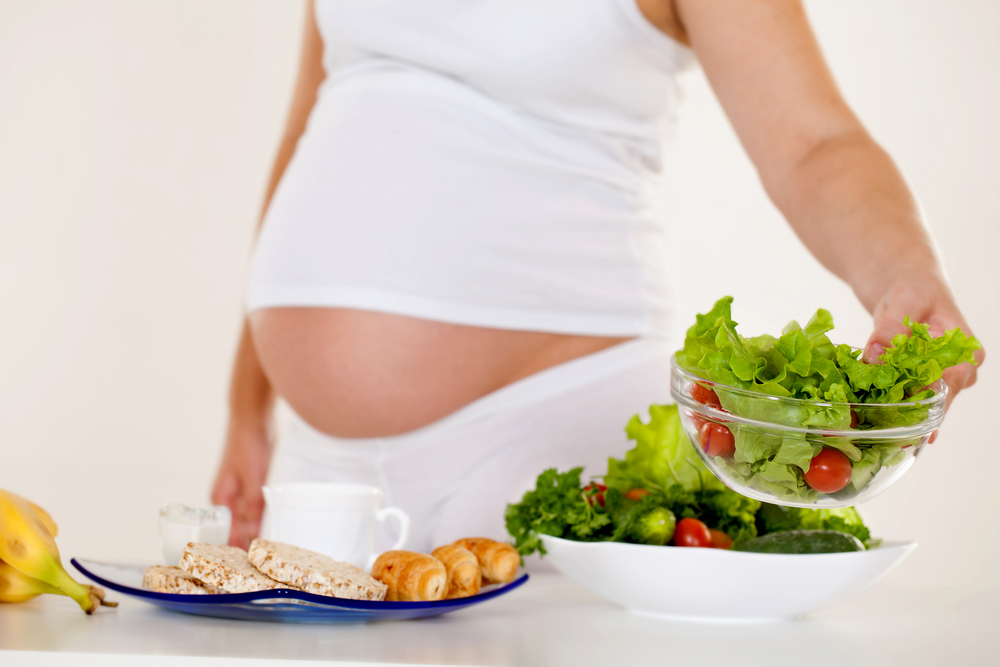Introduction
Embarking on in vitro fertilization (IVF) is both challenging and hopeful for couples. While medical technology is crucial, the role of diet and exercise in boosting fertility and enhancing IVF success is gaining recognition. A balanced diet, rich in essential nutrients, can significantly improve reproductive health, impacting egg and sperm quality positively. Similarly, appropriate exercise, tailored to individual needs, supports hormonal balance and overall well-being, critical factors in IVF efficacy.
This exploration will delve into how integrating specific dietary choices and exercise routines can substantially influence IVF outcomes, offering practical insights for those on this journey. Understanding and adopting these lifestyle modifications could be key in optimizing the chances of a successful IVF process.
Understanding IVF
IVF, or in vitro fertilization, is a transformative technique aiding couples facing fertility challenges. It encompasses the extraction of eggs, their fertilization with sperm in a laboratory setting, followed by the transfer of embryos into the uterus. This advanced medical procedure has opened doors for many to achieve parenthood. However, IVF is not without its challenges. It’s a journey that often involves significant emotional stress and physical strain. Participants may face a rollercoaster of emotions, from hope to anxiety, as they progress through each step.
Moreover, physical demands, such as hormonal treatments and procedures, add to the complexity. Therefore, a supportive and nurturing environment is essential. It plays a crucial role in not just enduring the process but also in enhancing the likelihood of a successful pregnancy. This supportive environment includes emotional care, physical well-being, and often, adjustments in lifestyle choices, including diet and exercise, to create the best possible conditions for a successful IVF outcome.
The Role of Diet in IVF Success

A well-balanced diet plays a critical role in reproductive health. Consuming a diet rich in key nutrients can significantly enhance fertility and the success rates of IVF treatments.
1. Nutritional Needs for IVF
- Folic Acid: Essential for both men and women, folic acid plays a crucial role in DNA synthesis and repair. For women, it’s vital for fetal development, particularly in the early stages of pregnancy, reducing the risk of neural tube defects. Foods rich in folic acid include leafy greens, citrus fruits, beans, and fortified cereals.
- Iron: Iron contributes to the health of both eggs and sperm. For women, it helps in maintaining a healthy lining of the uterus, which is important for implantation. Iron from plant sources, like spinach, legumes, and pumpkin seeds, is particularly beneficial. Pairing these foods with vitamin C-rich items can enhance iron absorption.
- Calcium: This mineral is essential for both male and female fertility. In women, it plays a role in regulating the menstrual cycle and in the development of the fetal skeleton. Dairy products, fortified plant milks, almonds, and leafy greens are good sources of calcium.
- Omega-3 Fatty Acids: Known for improving embryo quality, omega-3s also aid in regulating hormones and increasing blood flow to reproductive organs. Sources include fatty fish like salmon and plant-based options like flaxseeds and walnuts.
- Vitamins E and C: As antioxidants, these vitamins protect reproductive cells from oxidative stress and damage. Vitamin E is found in nuts and seeds, while vitamin C is abundant in fruits like oranges and strawberries, as well as vegetables like bell peppers and broccoli.
- Zinc: This mineral is crucial for fertility in both men and women, playing a role in hormone production, egg quality, and sperm health. Zinc can be found in nuts, seeds, whole grains, and dairy products.
2. Best Foods for IVF Success
- Fruits and Vegetables: Loaded with essential vitamins, minerals, and antioxidants, fruits and vegetables can combat oxidative stress, crucial for maintaining healthy eggs and sperm.
- Whole Grains: These are important sources of fiber and B vitamins and help maintain steady blood sugar levels, contributing to hormonal balance.
- Lean Proteins: Sources like poultry, fish, beans, and tofu provide the necessary building blocks for hormonal production and cell growth.
3. Foods to Avoid During IVF
- Caffeine: High caffeine intake has been linked to fertility issues. It’s advisable to limit coffee and other caffeinated beverages.
- Alcohol: Alcohol consumption can negatively impact fertility. Reducing or eliminating alcohol intake is recommended during IVF.
- Processed Foods: Often high in unhealthy fats and additives, processed foods can affect overall health and fertility. Opt for whole, unprocessed foods instead.
- Excessive Sugar: High sugar intake can lead to insulin resistance, affecting hormonal balance and fertility. Limiting sugary foods and drinks is beneficial during IVF.
By focusing on nutrient-rich foods and avoiding those that can hinder fertility, couples can create a supportive nutritional environment for IVF success.
Related- The Best IVF Diet for Before and After Transfer
Exercise and IVF

In addition to diet, physical activity is another key component of a successful IVF journey.
1. Benefits of Exercise for IVF
- Stress Reduction: IVF can be an emotionally taxing process. Exercise releases endorphins, which are natural stress relievers. Activities like yoga and light aerobics can also provide mindfulness and relaxation benefits, helping to ease the mental strain associated with IVF.
- Weight Regulation: Maintaining a healthy weight is vital for fertility. Regular, moderate exercise helps in managing body weight, thereby creating a more favorable environment for conception.
- Hormonal Balance: Exercise plays a role in regulating hormones, particularly insulin and estrogen. Balancing these hormones is key for successful ovulation and implantation.
2. Recommended Exercises for IVF Candidates
- Walking: A gentle yet effective form of exercise, walking promotes cardiovascular health without overly stressing the body.
- Yoga: Known for its stress-reducing and flexibility-enhancing benefits, yoga can be particularly beneficial for those undergoing IVF. It helps in relaxation and can improve blood flow to reproductive organs.
- Swimming: This low-impact exercise is excellent for overall fitness. It tones the body without the risk of excessive strain, making it ideal for IVF candidates.
3. Exercise Precautions During IVF
While exercising offers numerous benefits during IVF, it’s essential to approach it with caution:
- Avoid High-Intensity Workouts: Intense exercises can disrupt hormonal balance and potentially interfere with the IVF process. Activities like heavy weightlifting or high-intensity interval training should be avoided.
- Consult Healthcare Providers: Before starting any exercise routine, it’s advisable to consult with a healthcare provider. They can recommend a safe and effective exercise plan tailored to individual needs and circumstances.
- Listen to Your Body: It’s important for IVF candidates to listen to their bodies and avoid pushing themselves too hard. Rest days are just as important as exercise days.
Incorporating the right kind and amount of exercise can positively influence the IVF journey, contributing to both physical well-being and emotional resilience. It’s about finding a balance that supports the body without causing undue stress or fatigue.
Lifestyle Factors Influencing IVF Success

Managing stress, ensuring adequate sleep, and maintaining a healthy weight are critical components of preparing for and undergoing IVF. These lifestyle factors play a significant role in enhancing the effectiveness of the treatment.
1. Stress Management Techniques
- Meditation: Meditation can be a powerful tool for reducing stress. Regular practice helps to calm the mind, improve focus, and create a sense of balance, all of which are beneficial during the emotionally charged IVF process.
- Deep Breathing: Simple deep breathing exercises can be remarkably effective in managing acute stress. Techniques such as diaphragmatic breathing help to lower the heart rate and promote relaxation.
- Counseling: Seeking professional counseling or joining support groups can provide emotional support and strategies to handle stress. Talking to others who have gone through IVF can also be comforting and reassuring.
2. Importance of Sleep and Rest
- Regulating Hormones: Adequate sleep is essential for regulating hormones, including those that control the reproductive system. Disrupted sleep patterns can affect hormone production, impacting fertility.
- Physical Recovery: The physical demands of IVF treatments necessitate proper rest. Quality sleep allows the body to repair and rejuvenate, improving overall health and resilience.
- Sleep Hygiene: Practicing good sleep hygiene, such as maintaining a regular sleep schedule, creating a restful environment, and avoiding stimulants before bedtime, can enhance sleep quality.
3. Weight Management for IVF
- Healthy Weight and Fertility: A healthy weight is closely linked to fertility. Being either underweight or overweight can affect hormone levels and ovulation, impacting the chances of a successful IVF outcome.
- Diet and Exercise: A balanced diet rich in nutrients and a regular exercise regimen are key to maintaining a healthy weight. It’s not about extreme dieting or vigorous exercise, but rather about a consistent and balanced approach to health.
- Monitoring Progress: Regularly monitoring weight and seeking guidance from healthcare professionals for weight management can help in making informed decisions about diet and exercise.
Vegan diet impact on IVF success
A vegan diet, when well-planned and balanced, can have a positive impact on IVF success. Rich in fruits, vegetables, whole grains, and legumes, a vegan diet provides a wealth of essential nutrients, antioxidants, and fiber that are beneficial for reproductive health. These elements are known to improve hormonal balance, reduce inflammation, and enhance egg and sperm quality – all key factors in IVF success. Additionally, the high intake of antioxidants found in plant-based foods can combat oxidative stress, a known impediment to fertility. However, it’s crucial for individuals on a vegan diet to ensure they’re getting adequate amounts of certain nutrients like iron, vitamin B12, omega-3 fatty acids, and protein, which are vital for fertility and may require supplementation. Careful planning and possibly consultation with a nutritionist can help in optimizing a vegan diet for IVF success.
Conclusion
The influence of diet and exercise on IVF treatment outcomes is profound. Medical procedures are undoubtedly vital, but the contribution of a healthy lifestyle to the IVF journey is equally significant. A well-balanced diet, rich in essential nutrients, supports reproductive health, improving the odds of successful fertilization and embryo development. Concurrently, regular, moderate exercise aids in maintaining hormonal balance and optimal body weight, both critical for IVF efficacy. Additionally, managing stress and ensuring adequate sleep further augment IVF success rates. By embracing these lifestyle modifications – combining proper nutrition, suitable physical activity, and overall wellness – individuals and couples significantly boost their potential for achieving a positive result in their IVF endeavor.
